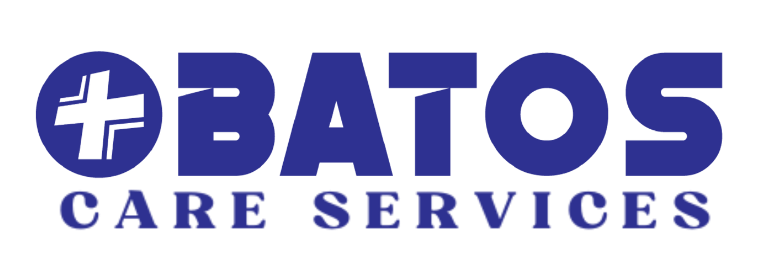As we age, our dietary needs may change. This is why it’s important to pay special attention to the diets of elderly individuals, especially those with special dietary needs.
These needs can arise due to medical conditions, allergies, or personal preferences, and it’s crucial that caregivers are equipped with the knowledge and tools to manage them effectively.
In this article, we’ll explore some tips for managing special dietary needs in elderly care. We’ll discuss common dietary restrictions, the importance of nutrition in elderly care, and offer practical advice for caregivers to ensure their elderly loved ones receive the proper nutrition they need to live a healthy and fulfilling life.
Common Dietary Restrictions for the Elderly
There are several dietary restrictions that caregivers should be aware of when caring for elderly individuals. Some of the most common dietary restrictions include:
- Low-sodium diets: High blood pressure is a common health issue among seniors. A low-sodium diet can help manage blood pressure and reduce the risk of heart disease.
- Low-fat diets: A low-fat diet is often recommended for individuals with high cholesterol levels or a history of heart disease.
- Diabetic diets: Diabetes is a common condition among older adults. A diabetic diet can help manage blood sugar levels and reduce the risk of complications.
- Gluten-free diets: Gluten intolerance or celiac disease is an autoimmune disorder that affects the digestive system. A gluten-free diet is the only treatment for this condition.
- Lactose-free diets: Lactose intolerance is a common condition among older adults. A lactose-free diet can help prevent digestive discomfort.
The Importance of Nutrition in Elderly Care
Proper nutrition is crucial for the health and well-being of elderly individuals. A balanced diet can help maintain physical and mental health, prevent chronic diseases, and improve quality of life.
However, elderly individuals may face unique challenges when it comes to maintaining a healthy diet, such as decreased appetite, difficulty swallowing, or changes in taste and smell.
It’s important for caregivers to understand the nutritional needs of elderly individuals and to provide them with meals that are not only nutritious but also appealing and enjoyable.
This can help promote a healthy appetite and prevent malnutrition.
Practical Tips for Managing Special Dietary Needs in Elderly Care
- Consult with a Registered Dietitian: A registered dietitian can help develop a meal plan that meets the specific dietary needs of an elderly individual.
They can also provide guidance on how to incorporate a variety of foods to ensure optimal nutrition. - Use Spices and Herbs: As we age, our sense of taste and smell may decline, making food less appealing. Using spices and herbs can help enhance the flavor of food and make meals more enjoyable.
- Offer Small, Frequent Meals: Elderly individuals may have a decreased appetite or difficulty eating large meals. Offering small, frequent meals throughout the day can help ensure they are getting the proper nutrition without feeling overwhelmed.
- Use Nutritional Supplements: Nutritional supplements can be a helpful way to ensure elderly individuals are getting the proper nutrients they need.
However, it’s important to consult with a healthcare provider before adding supplements to a diet. - Be Mindful of Food Safety: Elderly individuals may have a weakened immune system, making them more susceptible to foodborne illnesses. It’s important to practice proper food safety, such as washing hands and utensils, storing food properly, and cooking meat to the appropriate temperature.
- Be Creative with Meal Preparation: Meal preparation can become more challenging as we age. However, getting creative with meal preparation can make the process more enjoyable.
Consider using a slow cooker or preparing meals in advance and freezing them for later use. - Provide Adequate Hydration: Adequate hydration is important for overall health and can help prevent issues such as constipation and urinary tract infections
- Consider Cultural Preferences: Elderly individuals may have cultural preferences when it comes to food. Consider incorporating traditional dishes and ingredients into meals to make them more enjoyable and culturally appropriate.
- Involve Elderly Individuals in Meal Planning: Involving elderly individuals in meal planning can help them feel more involved and in control of their diet. This can also help ensure they receive meals they enjoy.
- Offer Social Support: Eating alone can be a lonely and isolating experience. Offering social support, such as eating meals together or inviting friends and family over for meals, can help promote socialization and make mealtime more enjoyable.
Resources for Managing Special Dietary Needs in Elderly Care
- Academy of Nutrition and Dietetics: The Academy of Nutrition and Dietetics offers resources for caregivers on managing special dietary needs in elderly care.
- American Heart Association: The American Heart Association offers resources for managing a low-sodium diet.
- American Diabetes Association: The American Diabetes Association offers resources for managing a diabetic diet.
- National Institute on Aging: The National Institute on Aging offers resources on healthy eating for older adults.
- Mayo Clinic: The Mayo Clinic offers resources on managing special dietary needs in elderly care.
Conclusion
Managing special dietary needs in elderly care can be challenging, but with the right knowledge and tools, At Obatos Care Services, we ensure our clients receive the proper nutrition they need to live a healthy and fulfilling life.
Generally, It’s important to consult with a registered dietitian, use spices and herbs to enhance flavor, offer, small, frequent meals, be mindful of food safety, and provide social support during mealtime. By following these tips and utilizing available resources, caregivers can help ensure their elderly loved ones maintain optimal health and quality of life.



